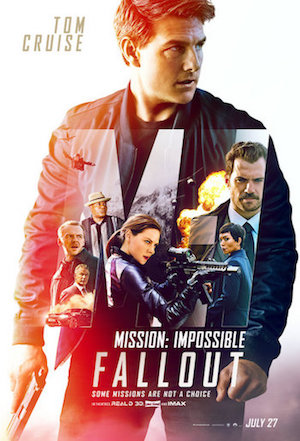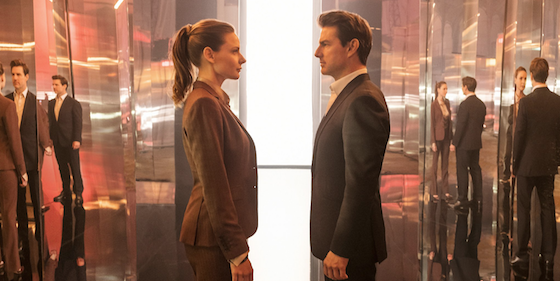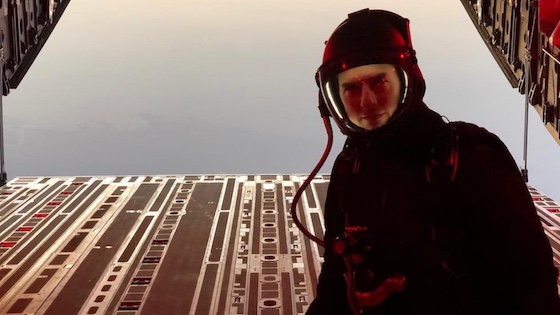Mission: Impossible—Fallout, the sixth installment of the action-movie series that started 22 years ago, offers a definitive verdict on the franchise’s place as vital Hollywood entertainment. It does so, in part, by once more tapping tried-and-true hero, Ethan Hunt (Tom Cruise), the agent who represents the best America has to offer.
Hunt refuses to accept any premise that sometimes he must sacrifice one team member in order to save the lives of many. Hunt always, no matter what odds, attempts to save everyone. Hunt exemplifies never-say-die courage. Hunt achieves the seemingly impossible.
Along with Hunt, this film returns writer-director Christopher McQuarrie—the first repeat director in the series’ history. Just as McQuarrie did in 2015 with his superb M:I—Rogue Nation, here, he spins a knotty tale of intrigue, innuendo, and infinite double-crosses. And this story props up some of the most exciting large-scale action scenes ever filmed.
I could nitpick the plot to death. I also could quibble that an equally compelling character—MI6 agent Ilsa Faust (Rebecca Ferguson)—isn’t as crucial to this story as she was in the last film, and that M:I–Fallout’s conclusion features possibly the longest 15-minute timer in cinema history. But it’s easy to let all of that slide, partially because the movie has a sense of humor about itself, and also because the cause-and-effect of each action sequence is laid out so plainly and urgently.
Much of this comes from what I’m calling “The John Wick Effect” making a noticeable difference here. The action film John Wick was directed by two former stuntmen, and their commitment to performing live, on-camera stunts rather than relying on CGI to piece together action scenes, makes the film feel real and visceral, rather than like a videogame. Using that aesthetic, and bolstered by a $178 million budget for exotic on-location shooting, as well as by a fluid editing style that allows the viewer to understand everything that is happening (rather than a Bourne-style shaky-cam that imitates urgency), McQuarrie brings Cruise (who just turned 56) into gritty, tense encounters where he is bested in certain fights and grows visibly tired, just like Keanu Reeves in John Wick.
There is always a danger that the audience, too, will tire from this franchise. It’s a difficult task to keep viewers connected to a sprawling series and to put together two and a half hours of solid thrills and surprises with a good level of emotional investment in the main character.
But that is exactly what McQuarrie—and the aging, but still leading-man, Cruise—have done.
This review is part of Eric Melin’s “LM Screen” column that appears in the upcoming edition of Lawrence Magazine.












Comments on this entry are closed.